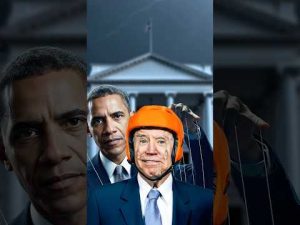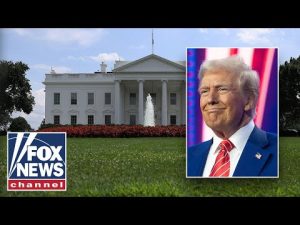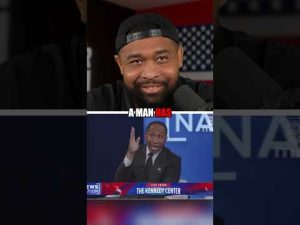**George Stephanopoulos: Master of Media Manipulation and the Latest “Gotcha” Game**
In the ever-turbulent world of politics and media, few figures have sparked as much debate as George Stephanopoulos, the host of ABC News. Once hailed as a formidable political operative during Bill Clinton’s presidency, he now finds himself in the hot seat after a recent interview with Vice President JD Vance. The encounter has raised eyebrows and further fueled the ongoing narrative of media mistrust, especially among conservative circles. Some might say that Stephanopoulos is more of a magician than a journalist, as he expertly cut away from a critical moment in the interview that many wish had been thoroughly explored.
The controversial interview revolved around allegations against Tom Homan, a key figure in the Trump administration concerning border policies. The accusations were bizarre, claiming that Homan took a bribe from undercover FBI agents — a plot twist right out of a political thriller. Yet, when Vice President Vance had the chance to respond, Stephanopoulos abruptly cut to a commercial break. This not-so-subtle move left many questioning the intent behind the interruption. Was it a flustered attempt to dodge accountability, or was it a calculated strategy to dodge discussing the real elephant in the room: the government shutdown and its impact on everyday Americans?
JD Vance brought forth an important point that hasn’t escaped the notice of many viewers. While he was ready to address the unfounded claims about Homan, he highlighted that American citizens are struggling due to a government gone rogue. Millions of families are looking for food assistance; troops are worried about pay; and here we are focusing on speculative allegations. Instead of diving into a rabbit hole of sensational accusations, wouldn’t it be better for the likes of Stephanopoulos to prioritize issues that affect the daily lives of citizens? The people want answers, not theatrics.
The interruption itself raised ethical questions about how interviews should unfold, especially when dealing with high-ranking officials. It’s almost unheard of to cut off a sitting Vice President mid-sentence and flip to an ad, especially with the weight of the topics at hand. One can’t help but wonder what the reaction would have been if a similar situation happened at a competing network, like Fox News. The media landscape would erupt in outrage, charging them with impropriety and bias. The double standards are glaring, and they go to show how the mainstream media often plays favorites.
Vance’s calm yet assertive rebuttal to the allegations was a masterclass in communication. Instead of raising his voice or resorting to theatrics, he dismantled the left’s arguments with clear logic and a measured tone. His performance not only illustrated why he is a valuable asset for the Republican Party but also served as a reminder that articulate representatives can cut through the noise of sensationalism. The question remains: why is the FBI conducting what appears to be entrapment operations, while radical leftist groups operate under their noses? What’s clear is that the mainstream media, as embodied by figures like Stephanopoulos, often chooses to ignore these pressing questions while steering the narrative elsewhere.
In the end, the encounter between Stephanopoulos and Vance exemplifies the chasm between the mainstream media’s focus and the realities faced by average Americans. It also serves as a reminder that savvy politicians can utilize media appearances to not just deflect baseless allegations, but to shine a light on the real concerns facing the nation. Until mainstream media stops playing games of sensationalism and starts focusing on the issues that truly matter, conservatives will continue to push back against such tactics. Meanwhile, places like ABC News may find their credibility dwindling faster than they can say “commercial break.”







